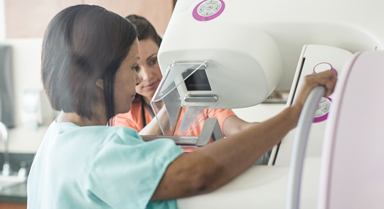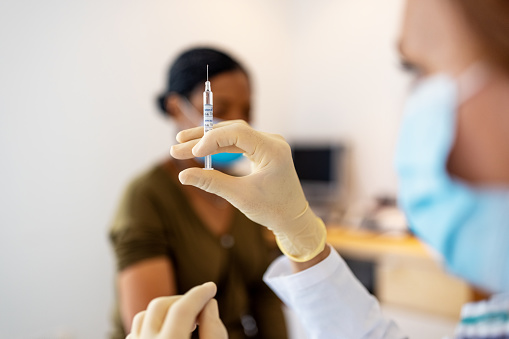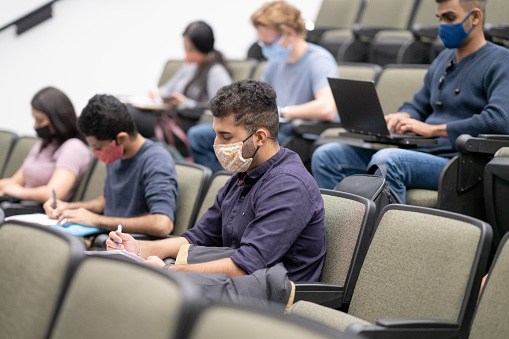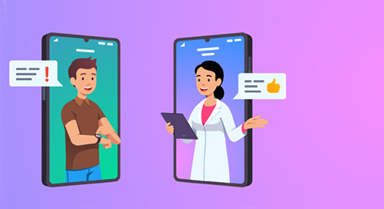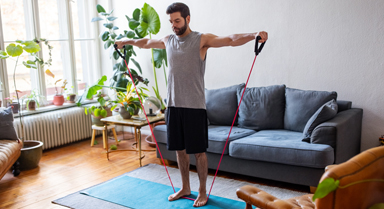Did you know?
- Globally, at least 2.2 billion people have a near or distance vision impairment. In at least 1 billion – or almost half – of these cases, vision impairment could have been prevented or has yet to be addressed.1
- While people of all ages can suffer from loss of vision, the majority are over the age of 50-years-old.1
Going for an eye exam is not only about checking your need for glasses – it’s important for your eye and general health too.
How often should I get an eye exam?
Factors such as age, health, and a family history of vision problems may determine how often you need an eye exam. Be sure to talk to your eye doctor to figure out how often your eyes need to be checked.
Healthy eyes at any age2
|
Young children |
Your child's pediatrician will likely check your child's eyes for healthy eye development and look for the most common childhood eye problems — lazy eye, cross-eyes or misaligned eyes. A more comprehensive eye exam between the ages of 3 and 5 will look for problems with vision and eye alignment. |
|
Children and teens |
Have your child's vision checked before he or she enters kindergarten. Your child's doctor can recommend how frequent eye exams should be after that. |
|
Adults (18+ years):
|
In general, if you are healthy and you have no symptoms of vision problems, the American Academy of Ophthalmology recommends having a complete eye exam at age 40, when some vision changes and eye diseases are likely to start. Based on the results of your screening, your eye doctor can recommend how often you should have future eye exams. |
|
Adults (60+ years): |
It’s recommended that you have your eyes checked every one – two years. (Unless an ophthalmologist or optometrist advises otherwise). |
What happens during an eye exam?
At the beginning of an eye exam, your eye doctor will ask for your medical history and if you have been experiencing any vision problems. If you currently have glasses or contacts, be sure to bring them to the exam so your eye doctor can see if you need prescription changes.
During the eye exam, your eye doctor can perform a number of different tests such as a glaucoma test (this is a simple screening to measure inner eye pressure), a visual acuity test, and a refraction test.
Based on the results of these tests, your doctor can determine if you need any follow-up vision tests or if you need to get glasses or contact lenses. If you have glasses or contact lenses, you may need to change the strength of your prescription. These tests help evaluate your overall eye health.
What is a visual acuity test?
A visual acuity test examines how well you can see with each eye. Your eye doctor may ask you to cover one eye at a time while identifying symbols. Typically, these symbols are different sized letters or numbers on a chart that’s displayed at a distance from you. Based on your results, your doctor can determine how well you can see at a distance.
What is a refraction eye exam?
A refraction eye exam helps your eye doctor figure out what prescription you need for glasses or contact lenses. To test this, your doctor may have you look into a machine that displays lenses of different strengths. By switching the lens in front of each eye while you read letters and numbers on a chart, your doctor can figure out which lens is best for you. This refraction test also helps your doctor to determine if you need a different strength lens in each eye.
How long does an eye exam take?
You should plan at least an hour for a comprehensive eye exam. There are a number of different kinds of vision screening tests that your eye doctor will perform to check overall vision health, including a glaucoma test, refraction test, and visual acuity test.
What are some easy ways to improve vision?
While it may be hard to improve vision, you can correct poor vision by wearing eye glasses or contacts. Regular visits to your eye doctor can also help prevent poor eye health. If not closely managed, diseases such as diabetes and glaucoma can make your vision worse. In addition to staying up-to-date with your prescription changes, wearing sunglasses can help prevent damage to your eyes from the sun. If you have any concerns about your vision or notice any changes, talk to your eye doctor.
Tip for Good Vision3
The following tips can help you keep your eyes healthy and your vision as clear as possible.
- Provide good light for reading, work, or study
- Use soft background light, plus a light on your task
- Take regular breaks from close work and visually demanding tasks
- Blink often, and close and rest your eyes when they feel tired or dry
- Avoid glare on TV and computer screens
- Place your TV or computer screen where lights do not reflect on the screen
- Some people find it easier to work on a computer in a dimly lit room
- Some people use special no glare screens that fit over the computer screen
- Wear proper eye safety equipment for hazardous tasks
- Wear UV-blocking sunglasses to protect your eyes
- Wearing sunglasses can protect your eyes from excessive ultraviolet (UV) light from the sun. Too much UV exposure can damage your retina and cause lasting vision loss. It can also raise the risk of cataracts.
- Avoid smoke and other things that irritate your eyes
I have good vision, do I still need an eye exam?
Even though you have good vision, you should still have your eyes checked. During an eye exam your eye doctor is not just checking how well you see, but your risk for eye diseases, like glaucoma and cataracts. If you have medical conditions of any kind, these could also impact your vision and eye health making a routine eye exam an important part of your health and wellness.
Getting routine eye exams can help maintain your eye health. Be sure to talk to your eye doctor if you currently have glasses or contact lenses or are experiencing any vision problems. A family history of eye problems and certain health conditions may lead to more frequent visits, but it’s important to be checked regularly even if you aren’t at risk.
1. World Health Organization, Blindness and vision impairment, https://www.who.int/news-room/fact-sheets/detail/blindness-and-visual-impairment, Revised October 13, 2022.
2. Mayo Clinic, Eye Exam, https://www.mayoclinic.org/tests-procedures/eye-exam/about/pac-20384655, Written April 10, 2021.
3. Cigna, Tips for Good Vision, https://www.cigna.com/knowledge-center/hw/tips-for-good-vision-hw122694, Updated as of January 24, 2022.
This is general health information and not medical advice or services. Always consult with your health care provider for appropriate examinations, treatment, testing and health care recommendations.
This article serves only as a reference and is intended for informational purposes only. Nothing in this article constitutes legal, tax, financial planning, health or medical advice including diagnosis or treatment. Always seek the advice of your physician or other qualified health provider with any questions you may have regarding a medical condition. References to third-party organizations or companies, and/or their products, processes or services, do not constitute an endorsement or warranty thereof. Products and services may not be available in all jurisdictions and are expressly excluded where prohibited by applicable law. All group insurance policies and health benefit plans contain exclusions and limitations. For costs and details of coverage, contact a Cigna representative.
All Cigna products and services are provided exclusively by or through operating subsidiaries of Cigna Corporation, including Cigna Health and Life Insurance Company, Life Insurance Company of North America, Cigna Global Insurance Company Limited, Evernorth Care Solutions, Inc. and Evernorth Behavioral Health, Inc., or through their affiliates and contracted companies.
In the U.S., Cigna Global Health Benefits® group medical and dental plans are insured or administered by Cigna Health and Life Insurance Company. In the U.S. and Canada, group life, accident and disability plans are insured or administered by Life Insurance Company of North America. In Canada, group medical, dental, vision, and evacuation plans are insured or administered by Cigna Life Insurance Company of Canada. Employee Assistance Programs are administered by or through Evernorth Care Solutions, Inc., Evernorth Behavioral Health Inc., Inc. or affiliates and contracted companies. In other jurisdictions, products and services are offered by or through Cigna Global Insurance Company Ltd. or affiliates and contracted companies. Products and services may not be available in all jurisdictions and are expressly excluded where prohibited by applicable law. The information on this site is only a general description of benefits. All insurance policies and group benefit plans contain exclusions and limitations. Please consult your licensed agent or contact Cigna for product availability, costs, and complete details of coverage.











